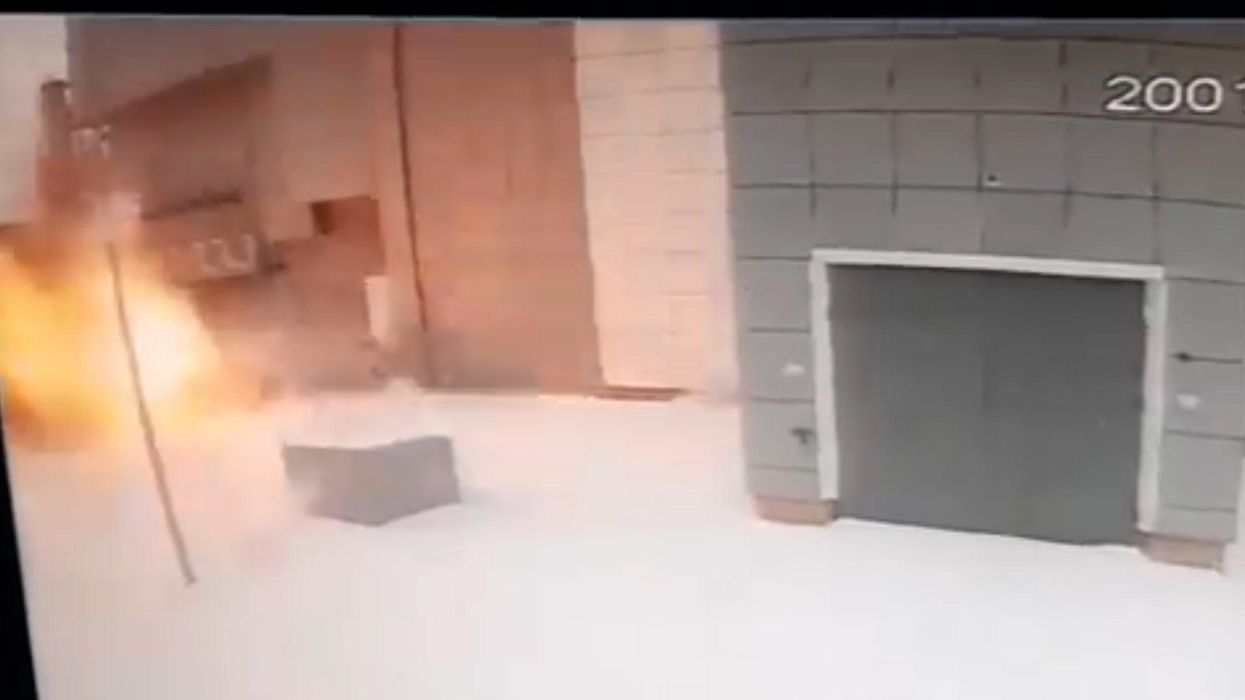An attack on Europe's largest nuclear power plant in Ukraine sparked international concern as Russia's invasion entered its second week.
On Friday, the world "narrowly averted a nuclear catastrophe" when a fire broke out on the southeastern city of Enerhodar and its Zaporizhzhia nuclear plant. Ukraine's state nuclear regulatory inspectorate said emergency services had put the fire out.
Ukrainian president Volodymyr Zelensky accused Moscow of resorting to "nuclear terror" and wanting to "repeat" the Chernobyl disaster, one of the world's worst nuclear accidents in 1986.
"No country other than Russia has ever fired on nuclear power units. This is the first time in our history. In the history of mankind. The terrorist state now resorted to nuclear terror," he said in a video message.
A Russian representative at the UNSC meeting said: "Today, we have once again heard lies about how Russian troops attacked the Zaporizhzhia nuclear power plant."
He added: "These statements are simply untrue.
"As a result of negotiations with the management of the power plant an agreement was reached to place it under the guard of the Russian military."
According to the UN's atomic watchdog, no radioactive material was released.
But what would happen if a nuclear power plant accident occurred?
Sign up to our free Indy100 weekly newsletter
Fires at nuclear power plants are dangerous and can prevent critical safety systems from working correctly. If an accident occurred, heat and pressure build-up. This forces the steam, along with the radioactive materials, to be released.
Special equipment is required to detect radiation, as people cannot see, smell, feel or taste it. In the case of an accident, officials would be alerted and emergency workers will measure the radiation released in the environment.
Sirens or emergency broadcast messages may be played. Those who live within 10 miles of a nuclear power plant should have designated evacuation zones and routes.
Professor David Fletcher, who previously worked at UK Atomic Energy and is now at the University of Sydney, said: "At present, it seems as though it is only ancillary buildings that have been damaged by Russian missiles.
"The real concern is not a catastrophic explosion as happened at Chernobyl but damage to the cooling system, which is required even when the reactor is shut down.
"It was this type of damage that led to the Fukushima accident."
A nuclear reactor meltdown is a severe nuclear reactor accident when the nuclear reactor fuel gets so hot that it burns through its casing and the containment chamber floor, causing a widespread release of radiation.
Edward Obbard, a senior lecturer and nuclear engineering program coordinator at The University of New South Wales in Australia, told the Australian Science Media Center: "A single fire located somewhere on the same site as a nuclear power plant cannot feasibly trigger a meltdown, however if the blaze cannot be contained then the nuclear power plant at the Zaporizhzhia site will be shut down and cannot generate electricity for the people of Ukraine.
"A greater risk to nuclear safety is a direct hit on a reactor building or spent fuel pool by explosive ordnance, which could release radioactive material if the blast is sufficiently powerful to breach containment."
The Independent has a proud history of campaigning for the rights of the most vulnerable, and we first ran our Refugees Welcome campaign during the war in Syria in 2015. Now, as we renew our campaign and launch this petition in the wake of the unfolding Ukrainian crisis, we are calling on the government to go further and faster to ensure help is delivered.
- To find out more about our Refugees Welcome campaign, click here.
- To sign the petition click here.
- If you would like to donate then please click here for our GoFundMe page.
Have your say in our news democracy. Click the upvote icon at the top of the page to help raise this article through the indy100 rankings.














